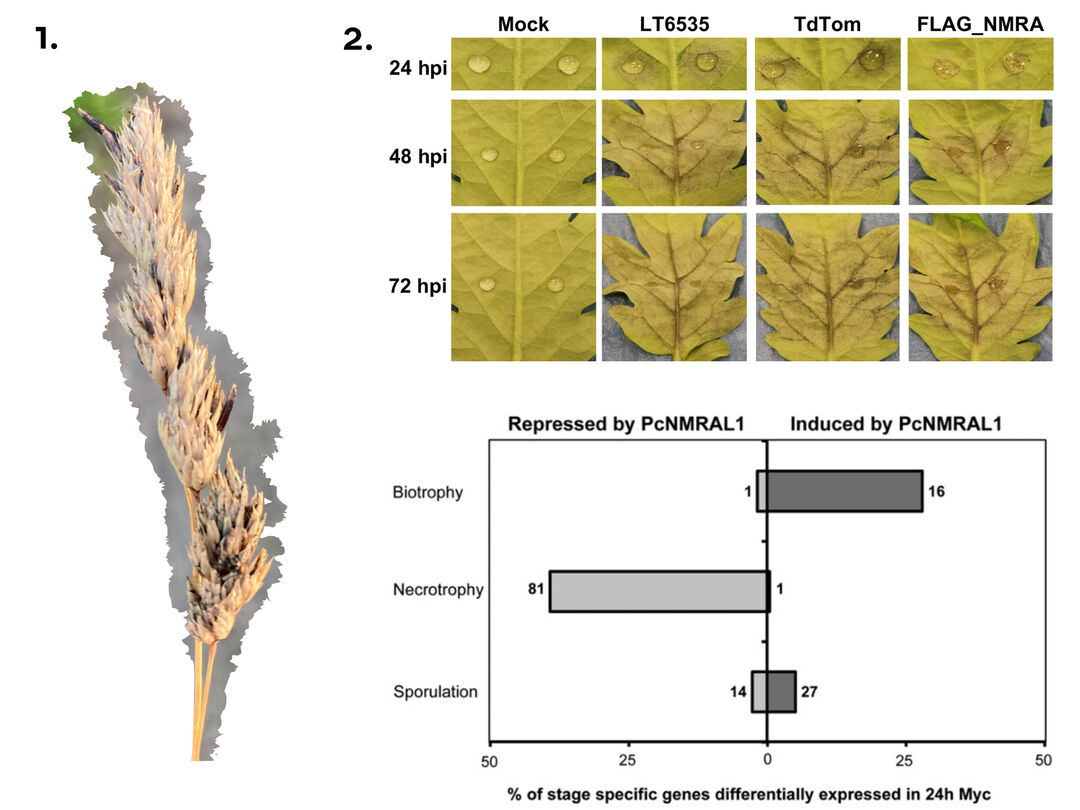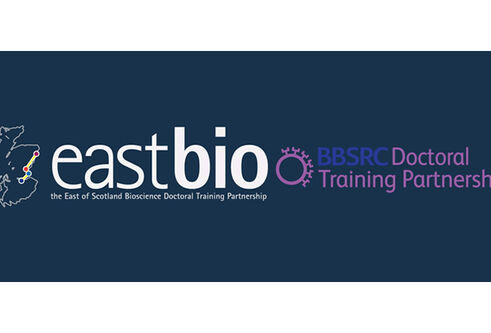Dr Edgar Huitema
Principal Investigator
Plant Sciences, School of Life Sciences
Director for the Professional Doctorate Programme
Head of Postgraduate Studies

Contact
Biography
Edgar Huitema is a Senior Lecturer within the Division of Plant Sciences at the University of Dundee. He obtained a PhD in Plant Pathology from Ohio State University in 2005. Following this, he worked as a postdoctoral researcher at Case Western Reserve University, Cleveland, and later at the Sainsbury Laboratory, Norwich.
In 2009, Edgar joined the University of Dundee as a Principal Investigator, where he established his research group. Edgar's research focuses on how filamentous pathogens infect, sense, and grow on (non)host plants. He was promoted to Senior Lecturer in 2014. In addition to his research, Edgar contributes to teaching and academic leadership at Dundee, serving as Head of Postgraduate Studies in the School of Life Sciences (2025 - present) and Director for the University of Dundee Professional Doctorate programme (2022 - present) and Training Director BARIToNE CTP (Dundee) (2022 - present).
Research
Eukaryotic pathogens like Phytophthora capsici and Claviceps purpurea cause diseases on important crops. Understanding their means by which they cause disease and incite losses is key improving crop productivity. Our research focuses on PcNMRAL1, a conserved transcriptional regulator in P. capsici that extends the infection cycle by altering stage-specific gene expression. We hypothesise that PcNMRAL1 integrates metabolic signals to control the switch from biotrophy to necrotrophy during infection. By understanding how PcNMRAL1 integrates signals to regulate infection, we aim to develop novel strategies for disease control, including targeted chemicals and crop improvement.
Understanding the biology of Claviceps purpurea infection of Barley and the subsequent production of mycotoxins, is another area of research in our group. C. purpurea (ergot) is a broad host range pathogen that can infect most grasses and cereal crops, and produce toxins that are detrimental to human and animal health. By sampling ergot from across the UK, and characterising a growing strain collection in the lab, we aim to understand the genetic and environmental factors that contribute to disease and grain contamination.

Image 1: Wild grass infected with Claviceps purpurea, Image 2. Molecular analyses of the role of PcNMRAL1 towards P. capsici infection. Top panel, comparative analyses of infection rates of Wildtype, TdTomato, and PcNMRAL1 over-expressing strains. Bottom Panel, overview of changes in gene expression, instigated by PcNMRAL1 over-expression, during infection.
Selected Publications
1. Liu, S., Lenoir, C., Amaro, T., Rodriguez, P., Huitema, E.§, and Bos, J.§ (2022). Virulence strategies of an insect herbivore and oomycete plant pathogen converge on host E3 SUMO ligase SIZ1. New Phytologist, 235(4), 1599 - 1614
2. Stam, R., Motion, G. B., Martinez-Heredia, V., Boevink, P. C., & Huitema, E.§ (2021). A conserved oomycete CRN effector targets tomato TCP14-2 to enhance virulence. Mol. Plant Microbe Interact., 34(3), pp 309-318..
3. Thilliez, G.J., Armstrong, M.R., Lim, T.Y., Baker, K., Jouet, A., Ward, B., Van Oosterhout, C., Jones, J.D., Huitema, E., Birch, P.R. and Hein, I., (2019). Pathogen enrichment sequencing (PenSeq) enables population genomic studies in oomycetes. New Phytologist. 221(3), pp.1634-48.
4. Pham, J., Stam, R., Heredia, V. M., Csukai, M. and Huitema, E.§ (2018). An NMRA-like protein regulates gene expression in Phytophthora capsici to drive the infection cycle on tomato. Mol. Plant Microbe Interact. 31(6). 665 - 677. PubMed PMID: 29419371.
5. Amaro, T. M. M., Thilliez, G. J. A., Mcleod, R. A. & Huitema, E.§ (2017). Random mutagenesis screen shows that Phytophthora capsici CRN83_152 mediated cell death is not required for its virulence function(s). Molecular Plant Pathology. 19(5). 1114 - 1126.
6. Howden, A. J. M., Stam, R., Martinez Heredia, V., Motion, G. B., Hodge, K., ten Have, S., Amaro, T. M. M. M. & Huitema, E.§ (2017). Quantitative analysis of the tomato nuclear proteome during Phytophthora capsici infection unveils regulators of immunity. New Phytologist. 215(1). 309 - 322.
7. Motion GB, Howden AJ, Huitema E§. & Jones S§ (2015). DNA-binding protein prediction using plant specific support vector machines: validation and application of a new genome annotation tool. Nucleic Acids Res. 2015 Dec 15;43(22):e158.
8. Stam, R., Howden, A. J. M., Delgado-Cerezo, M., Amaro, T. M. M. M., Motion, G. B., Pham, J. and Huitema, E.§ (2013). Characterisation of cell death inducing Phytophthora capsici CRN effectors suggests diverse activities in the host nucleus. Front. in Pl. Sci. 4(11) 387. (doi: 10.3389/fpls.2013.00387)
9. Jupe, J., Stam, R., Howden, A. J. M., Morris, J. A., Zhang, R., Hedley, P. E. & Huitema, E§. (2013) Phytophthora capsici-tomato interaction features dramatic shifts in gene expression associated with a hemi-biotrophic lifestyle. Gen. Biol. 14:R63 (doi:10.1186/gb-2013-14-6-r63).
10. Stam, R., Jupe, J., Howden, A. J. M., Morris, J. A., Boevink, P. C., Hedley, P. E. & Huitema, E. (2013) Identification and Characterisation CRN Effectors in Phytophthora capsici Shows Modularity and Functional Diversity PLoS ONE. 8, 3, 13 p., e59517
§ Lead / Corresponding Author
People in my lab
- Rafael Monteiro Do Carmo
- Dylan Penlington
Teaching
- Contributor to BS31005 - Level 3 Genetics (2020-present)
- Academic Lead BS32012 - Plant Sciences Practical course (2013-2025)
Media availability
I am available for media commentary on my research.
Exploring the Mechanistic Basis of Lifestyles in Filamentous Plant Pathogens
Contact Corporate Communications for media enquiries.
Areas of expertise
- Climate change
Awards
| Award | Year |
|---|---|
| Major Personal Funding Awards / European Research Council Starting Grant | 2012 |
| Personal Fellowships / RSE Scottish Government Personal Research Fellowship | 2009 |
Stories
News
The EastBio Doctoral Training Partnership has been awarded funding by UKRI BBSRC to continue providing world-class doctoral training across the life sciences in Scotland

News
Three new funding awards from the Global Challenges Research Fund were recently made to research teams in the Division of Plant Sciences.